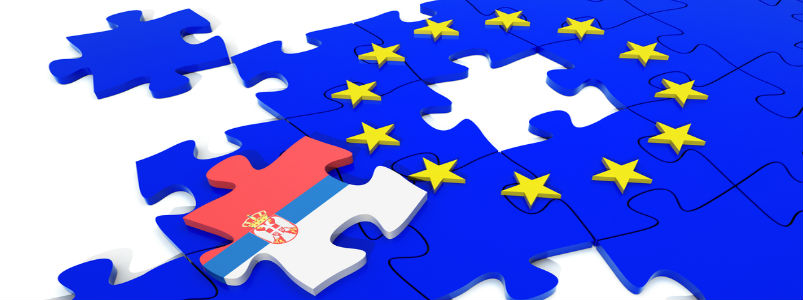Public perception of EU integration
After 10 years of submitting the membership application and more than five years since the opening of the negotiations, most citizens still support EU membership, but at the same time very little is known about the accession process and less than half would vote in the referendum. The rating of Serbia-Union relations in the opinion of citizens is 2.68. However, 53% of respondents support Serbia’s membership in the European Union, 40% have a contrary view, while 7% are unable to comment on this issue. Most of the respondents who support Serbia’s EU membership are over 50 years old. Some 62% of respondents believe that Serbia benefits from cooperation with the European Union (respondents from 30 to 45 years of age and over 60 years of age, as well as those with higher and higher education), 30% believe that Serbia does not benefit from cooperation with the EU. while 8% were not able to comment on this issue.
Of those surveyed, 22.5% said that we have the best relations with neighbouring countries with Hungary, 21.7% said BiH, while Montenegro occurs in 18.2% of cases. As a country with which we have the worst relations, 52.9% rated Croatia, while 31.9% cited Albania.
When it comes to information about the European Union, 46% of citizens believe that there is not enough information about the EU (mostly women, primary and secondary education respondents and residents of Eastern and Southern Serbia). The largest number of respondents stated that information about the EU is most often received from the Government of Serbia through the media (29.3%). Schools and colleges cite 19.5% of respondents as a source of information; and 16.2% reported family and friends through personal contact. Sources of information are 15.5% of non-governmental organizations through the media, while parliament in the media, in 14.7% of cases, is the most common source and method of gathering information on the EU topic.

